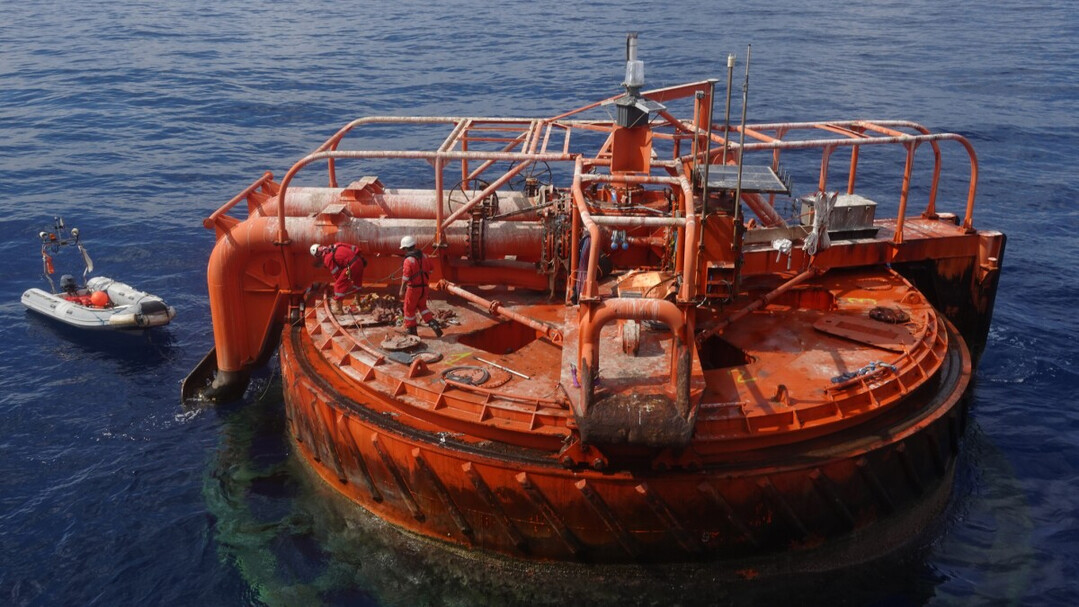
Buenos Aires, Argentina - In a significant boost to Argentina's ambitions to become a major global oil exporter, energy giants Shell and Chevron have finalized their participation in the $3 billion Vaca Muerta Sur (Southern Vaca Muerta) pipeline and export terminal project. The move solidifies a powerful consortium aimed at unlocking the vast potential of the Vaca Muerta shale formation.
Argentina's state-owned energy company, YPF, confirmed the completion of legal formalities, granting Shell Argentina S.A. and Chevron Argentina SRL equity stakes in the Vaca Muerta Oleoducto Sur SA (VMOS) midstream joint venture. They join initial stakeholders YPF S.A., Vista Energy Argentina SAU, Pampa Energía S.A., and Pan American Sur S.A., along with Argentinian independent Pluspetrol S.A., which exercised its option in December.
The ambitious project includes the construction and operation of a 437-kilometer (approximately 272 miles) pipeline designed to transport crude oil from the prolific Vaca Muerta shale fields in the Neuquén Basin to a new state-of-the-art marine export terminal on the Atlantic coast at Punta Colorada in Río Negro province.
YPF anticipates the pipeline will commence operations by the end of 2026 with an initial capacity of 180,000 barrels per day (B/D). Plans are in place to progressively increase throughput to 550,000 B/D in 2027, with the potential to reach 700,000 B/D after 2028, positioning Argentina as a significant player in the international oil market.
Vaca Muerta: A Shale Oil Powerhouse Emerges
The Vaca Muerta formation is rapidly transforming Argentina's energy landscape. YPF's recent financial results underscore this growth, with oil export revenues nearly tripling to $1 billion in 2024. The company's crude production saw a 6% year-on-year increase, reaching 257,000 B/D, with shale oil accounting for a record 122,000 B/D – a remarkable 26% surge compared to 2023.
YPF CEO Horacio Marín emphasized the company's strategic shift during a recent earnings call, stating, "We are reshaping our oil production matrix, leaving conventional mature fields and targeting to increase our shale oil production share from 50% to a minimum of 80%." He further highlighted the crucial role of the VMOS project in consolidating the efforts of major Argentine producers to meet the anticipated pipeline throughput.
The Vaca Muerta Sur project received a significant endorsement on March 13th when Argentina’s Minister of Economy Luis Caputo announced it would be the first to benefit from the Incentives Regime for Large Investments, a program initiated by President Javier Milei in 2024 to attract substantial capital to key sectors.
Key Contracts Awarded for Export Terminal
VMOS has already awarded major engineering and construction contracts. Madrid-based Técnicas Reunidas secured the EPCM (engineering, procurement, construction, and management) contract for the hydrocarbon storage and dispatch terminal at Punta Colorada. The $440 million contract includes over $70 million for engineering and project management services. Técnicas Reunidas previously contributed to optimizing YPF's conceptual engineering and upgrading its Luján de Cuyo refinery.
Additionally, CB&I, a Texas-based firm, was awarded an EPC contract for the engineering, procurement, fabrication, and construction of the terminal's substantial oil storage facility, boasting a capacity of 630,000 cubic meters (approximately 4 million barrels). The terminal will feature five storage tanks and a dispatch capacity of 62,000 cubic meters per day through two advanced monobuoy systems capable of loading very large crude carriers (VLCCs), facilitating efficient offshore oil exports.
Experienced Players Betting on Argentina's Shale Future
Both Shell and Chevron have established presences in Argentina's energy sector, particularly within the Neuquén Basin. Shell operates several key license blocks, including Cruz de Lorena, Sierras Blancas, Coirón Amargo Suroeste, and Bajada de Añelo, and holds working interests in blocks operated by Total Austral and YPF.
Chevron operates a significant concession with both conventional and shale potential and participates in the Loma Campana and Narambuena concessions within Vaca Muerta.
Furthermore, the recent acquisition of ExxonMobil's Argentinian exploration assets by Pluspetrol underscores the growing confidence in the region's potential. This acquisition included key Vaca Muerta blocks and a stake in the existing Oldelval pipeline, further integrating production and transportation infrastructure.
The immense scale of Vaca Muerta's resources positions Argentina for a transformative period in its energy sector. According to a December 2024 report by the US Energy Information Administration, Argentina holds the world's second-largest technically recoverable shale gas reserves (308 trillion cubic feet) and the fourth-largest shale oil reserves (16 billion barrels). The Vaca Muerta Sur pipeline project, with the backing of major international and domestic players, represents a critical step towards realizing the full potential of these vast resources and establishing Argentina as a significant global energy exporter.
[Copyright (c) Global Economic Times. All Rights Reserved.]



























